by Ryan H. Flax, Esq.
(Former) Managing Director, Litigation Consulting
A2L Consulting
Expert witnesses are a key component of almost every big-litigation. As litigators, we rely on the evidence developed by our expert witnesses, presented as their testimony opinions based on the facts, to show jurors or the court why our client should prevail. Well, it’s not as easy to do this as you think, because you can’t control your experts and you also can’t leave it up to them.
In federal court, experts are bound by Rule of Civil Procedure 26 to disclose the subject matter upon which they’ll testify in court. As litigators, it’s our job to make sure (1) the expert report is accurate and comprehensive to the needed expert testimony that serves the client’s litigation needs and (2) that the expert is well prepared to be deposed and then testify on the subject matter of that report. Even very experienced expert witnesses need intense help preparing for depositions and trial testimony. Inexperienced expert witnesses require a ground-up education.
So what happens if that report, as it was served to opposing counsel when it was scheduled to be, doesn’t jive with what you need that expert to say in court? We have just received a free lesson in what not to do from Judge Lucy Koh in the current edition of the Apply v. Samsung patent litigation currently underway in the Northern District of California.
Just to lay a bit of foundation for this lesson – the case involves several patents of each company who accused each other of infringement relating to smartphone technology. One of the Apple patents covers the swipe-to-unlock feature of the iPhone, another covers a feature called “quick links” found in Apple’s devices. This later patent (No. 5,946,647 shown below) has just now been returned to the Samsung litigation based upon an order by the U.S. Court of Appeals for the Federal Circuit, which in an opinion last Friday (April 25, 2014) revived the patent by affirming a claim construction by Judge Richard A. Posner from a different case by Apple against Motorola – Judge Posner’s claim construction contrasted with that of Judge Luch Koh in the Samsung litigation.
Confused? So was the judge and so were the parties and so were their experts.
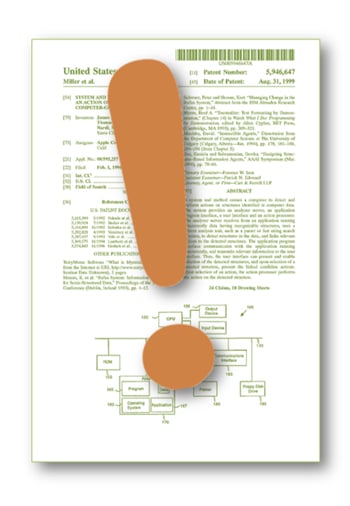 “Quick links” refers to a software function that recognizes text and other things viewable on a smartphone, e.g., a phone number, an email address, a date, or a name, and provides an automatic link to other relevant functions in the phone, like dialing that phone number, drafting an email, adding a calendar event, or adding a contact. Earlier in the Samsung trial, Apple argued that the Motorola-related case information be excluded – Judge Koh agreed and, so, neither Apple nor Samsung presented evidence relating to the Judge Posner claim construction of the ’647 patent (a key to the divergent construction seems to be that a separate thing, called an “analyzer server,” is required as a go-between for the recognizable link and the related functionality).
“Quick links” refers to a software function that recognizes text and other things viewable on a smartphone, e.g., a phone number, an email address, a date, or a name, and provides an automatic link to other relevant functions in the phone, like dialing that phone number, drafting an email, adding a calendar event, or adding a contact. Earlier in the Samsung trial, Apple argued that the Motorola-related case information be excluded – Judge Koh agreed and, so, neither Apple nor Samsung presented evidence relating to the Judge Posner claim construction of the ’647 patent (a key to the divergent construction seems to be that a separate thing, called an “analyzer server,” is required as a go-between for the recognizable link and the related functionality).
With all the apparent confusion over the correct claim construction at this point, you could almost forgive Samsung’s expert for using an ultimately incorrect claim construction of the ’647 patent’s claims in his expert report (he followed the one Judge Koh made giving claim terms their plain and ordinary meaning, but he could have given alternate opinions based on the divergent constructions of Judge Posner). What he cannot be allowed to do, and what Samsung’s counsel cannot be allowed to encourage, is to testify in the current case on an opinion not expressed in his expert report on the patent (and, apparently also not introduced in deposition testimony, which could have arguably opened the door to the issue).
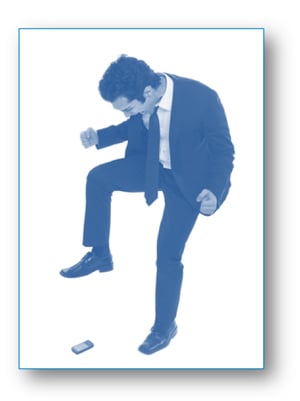 After Samsung’s patent/technology expert, Kevin Jaffay, testified, “I have been using this [Posner’s] construction since the first day I worked on this case,” a “visibly angry” Judge Koh said, “[i]n his report, he does not adopt Posner’s construction and then he gets up on the stand and says he adopted it from day one. I’m going to strike what he said. I think he was primed to say that and that’s improper.” (reported by Law360, B.Winegarner (subscription required)).
After Samsung’s patent/technology expert, Kevin Jaffay, testified, “I have been using this [Posner’s] construction since the first day I worked on this case,” a “visibly angry” Judge Koh said, “[i]n his report, he does not adopt Posner’s construction and then he gets up on the stand and says he adopted it from day one. I’m going to strike what he said. I think he was primed to say that and that’s improper.” (reported by Law360, B.Winegarner (subscription required)).
Not only did Judge Koh strike Samsung’s expert’s testimony on non-infringement of the ’647 patent, she didn’t refund Samsung’s time on the chess clock at trial, which may be a crippling one-two punch for an already-behind-the-8-ball-Samsung. Quite a sanction by an angry judge.
The take-home lesson from this series of events is multifold. First, experts are bound by their expert reports, but that doesn’t mean their expert reports must be limited in any specific way. As counsel, when we work with our experts to outline the issues to be addressed in reports and then, potentially, testified to at trial, we should be strategic and tactical and keep our experts on track, but be open-minded, flexible, and do our best to plan for every trial contingency so we can include “outs” in the expert reports. Here, it appears that Samsung’s expert suggested that he had considered Judge Posner’s claim construction all along, but his expert’s report did not bear that out in any useful way and it made an enemy of the already-sensitive judge (about her claim construction).
Second, we all know that as counsel it’s our job to get our experts totally ready to competently and persuasively testify at trial. We need to spend hours and days and weeks doing this witness preparation and cover all bases of evidence and all contingencies for trial developments and cross examination. However, what we cannot do is put words in our expert’s mouth. This is the line we must walk. It is the expert’s job to present his own opinions on the facts under the law as we explain it to him. It is not the expert’s job to be our and/or our client’s mouthpiece. The lines are clearer in other countries, such as the U.K., but the principle remains true that expert witnesses are akin to servants of the court and the legal system – they are not advocates, that’s our job as counsel. Make sure you stay on the right side of the line by preparing, not coaching your expert witnesses.
Other articles related to expert witnesses and the Apple v. Samsung litigation from A2L Consulting:
- FREE WEBINAR: Learn exactly how to stay on the right side of the line with experts in this free webinar (one week from today - recorded version will be available to those who register too)
- FREE Download: The Patent Litigation Toolkit (3rd Edition)
- Free Webinar: Using Patent Litigation Graphics at Trial
- Why Patent Trial Graphics Matter-And Not Just for Confused Jurors
- 11 Tips for Winning at Your Markman Hearings
- Litigation Graphics and Demonstrative Evidence at the USPTO
- What Does Patent Litigation Animation Cost? (Includes Animation Examples)
- Witness Preparation: Hit or Myth?
- Witness Preparation: The Most Important Part
- 7 Things Expert Witnesses Should Never Say
- The Top 14 Testimony Tips for Litigators and Expert Witnesses
- Latest Developments in Apple v. Samsung: Post-Trial Motions Ruled-Upon
- Apple v. Samsung: Thanks to Patent Reexam - It's Not Over Yet
- A Patent Renaissance Is Coming, Spurred by Apple's Design Patent Litigation
- Patent Litigation Graphics + Storytelling Proven Effective: The Apple v. Samsung Jury Speaks
- Demonstrative Evidence & Storytelling: Lessons from Apple v. Samsung
- Trial Graphics in Patent Litigation - 11 Great Demonstrative Tips


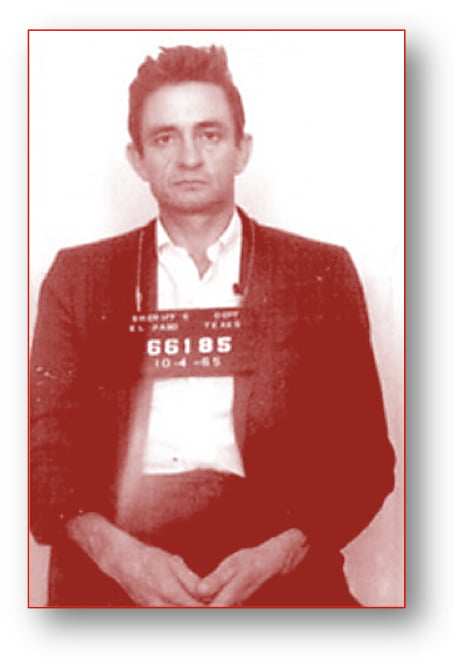

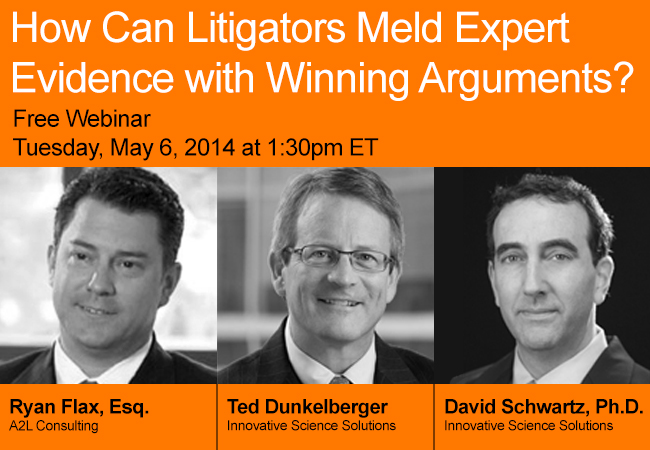
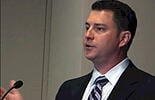
Leave a Comment